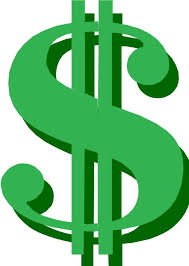Feb 13, 2014 12:34 PM PT
 The Swiss franc rose against all but one of 16 major peers and the yen strengthened as stocks inEurope and Asia fell amid increased demand for haven assets. Australia’s dollar dropped for a second day after unemployment jumped to a 10-year high. The greenback slipped the most in three weeks versus its European counterpart.
The Swiss franc rose against all but one of 16 major peers and the yen strengthened as stocks inEurope and Asia fell amid increased demand for haven assets. Australia’s dollar dropped for a second day after unemployment jumped to a 10-year high. The greenback slipped the most in three weeks versus its European counterpart.
The dollar fell to the weakest level of the year after retail sales unexpectedly declined amid signs that adverse-weather conditions are weighing on economic growth as yet another storm battered the eastern U.S.
“The bad weather is affecting the U.S. data, it’s affecting sentiment, and it’ll put pressure on the dollar,” said Kazuo Shirai, a trader at Union Bank NA in Los Angeles. “The trend for dollar buying we’ve seen up to now seems to have hit a wall.”
The Bloomberg Dollar Spot Index decreased 0.4 percent to 1,020.07 at 3:32 p.m. New York time after sliding to 1,020.01, the lowest level since Dec. 31.
The dollar fell 0.7 percent to $1.3681 per euro. It slid 0.3 percent to 102.25 yen. The 18-nation euro gained 0.4 percent to 139.88 yen.
The franc rallied 0.7 percent to 89.39 centimes per dollar as stocks in Europe and Asia snapped a six-day rally after company earnings disappointed investors.
Volatility Rebounds
The JPMorgan G7 Volatility Index rose to 7.88 percent after touching an almost three-week low of 7.76 on Feb. 11.
Russia’s ruble weakened the most out its 24 emerging-market peers, heading for its biggest drop against Bank Rossii’s basket of target currencies in three weeks, after oil fell and an increase in Australian unemployment spurred concern that economic growth is slowing.
The currency depreciated 1 percent to 35.1693 per dollar after earlier slipping 1.3 percent, the most since Jan. 31.
India’s rupee dropped versus all but the ruble among developing-economy peers on speculation oil importers will step up dollar purchases to repay borrowings from the central bank. The currency fell 0.5 percent to 62.44 per dollar after sliding 0.6 percent, the most since Jan. 30.
The Indonesian rupiah gained the second-most among emerging-market currencies after a report showed the country’s current-account deficit almost halved last quarter and the central bank left borrowing costs unchanged. The rupiah climbed 0.9 percent to 11,980 after rising to 11,975, the highest level since Dec. 12.
Storm Surges
A winter storm that cut electricity to more than a half-million customers across the South and grounded 13,000 flights this week turned its power on the U.S. Northeast, dropping heavy snow from Virginia toMaine.
In Washington, 11 inches (28 centimeters) were reported, New York’s Central Park had 9.5 inches by 10:45 a.m. and the West Roxbury section of Boston had 2 inches at 1:32 p.m.
Federal Reserve Chairman Janet Yellen’s testimony to the Senate Banking Committee was postponed because of the storm.
Retail sales in the U.S. fell 0.4 percent in January after a revised 0.1 percent drop the prior month, according to the Commerce Department. The median forecast of 86 economists surveyed by Bloomberg called for no change.
“The January retail sales report is an unmitigated disaster,” Stephen Stanley, chief economist at Pierpont Securities LLC in Stamford, Connecticut, wrote in a client note. “The entire complexion of the consumer was changed for the worse today.”
Economic Reading
Jobless claims increased by 8,000 to 339,000 (INJCJC) in the week ended Feb. 8 from 331,000 in the prior period, a Labor Department report showed today in Washington. The median forecast of 52 economists surveyed by Bloomberg called for a decrease to 330,000.
“The data is weaker than expected and, frankly, I think the dollar should’ve moved more than it did,”Greg Anderson, head of global foreign-exchange strategy at Bank of Montreal, in a phone interview. “It’s a substantial disappointment, and it dents economic confidence.”
Australia’s jobless rate rose to 6 percent last month, the highest since July 2003. Employment (AULFEMPC) unexpectedly shrank by 3,700. Economists polled by Bloomberg forecast a 15,000 gain.
Australia’s currency fell 0.4 percent to 89.87 U.S. cents. It touched 90.67 cents yesterday, the highest since Jan. 13.
The euro climbed versus most of its major peers before a report tomorrow that economists said will show the euro-area economy grew 0.2 percent in the final three months of last year, expanding for a third straight quarter.
“The euro could arrest its recent slide if the improved growth outlook diminishes expectations for the ECB to further ease monetary policy,” DBS Group Holdings Ltd. analysts wrote in a note to clients.
To contact the reporter on this story: Joseph Ciolli in New York at jciolli@bloomberg.net
To contact the editor responsible for this story: Dave Liedtka at dliedtka@bloomberg.net